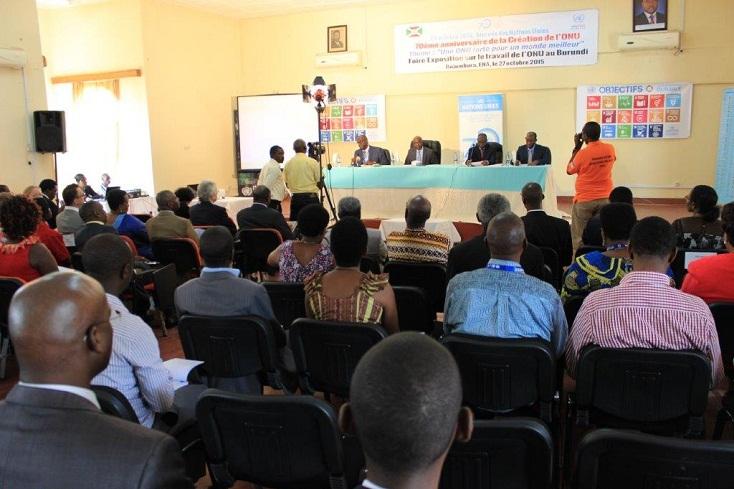The United Nations Security Council today urged the Government of Burundi to establish a climate of freedom and openness conducive to the holding of elections later this year and expressed concern about reports of intimidation, harassment, arbitrary detention and other curtailments to the enjoyment of the rights of freedom of peaceful assembly and expression.
Adopting a Presidential Statement at a formal meeting, the15-member Council welcomed the unanimous adoption by Burundians of the Electoral Code in 2014, the adoption of the electoral roadmap and the signing of the code of conduct for use of political parties and actors, with the assistance of the United Nations Office in Burundi (BNUB).
However, the Council was "concerned about the intimidation and harassment, political violence, arrests and arbitrary detentions and other restrictions on the exercise of the right to freedom of expression and the right peaceful assembly that were reported to it."
As such, Council members encouraged the Government "to do more to provide a space to all political parties, including those of the extra-parliamentary opposition, and improve the dialogue between the different political actors so as to create a climate of freedom and Opening conducive to the holding of the 2015 elections." Burundi was also encouraged "to ensure that women can participate fully and effectively in the various stages of the electoral process."
The Council similarly expressed concern "about restrictions on freedom of expression and opinion and freedom of peaceful assembly," as well as the threats that continue to weigh on journalists and representatives civil society, including those working in the field of human rights. To that end, the Council called on the Government to take all necessary measures to guarantee the exercise of these fundamental rights and the protection of civil society.






